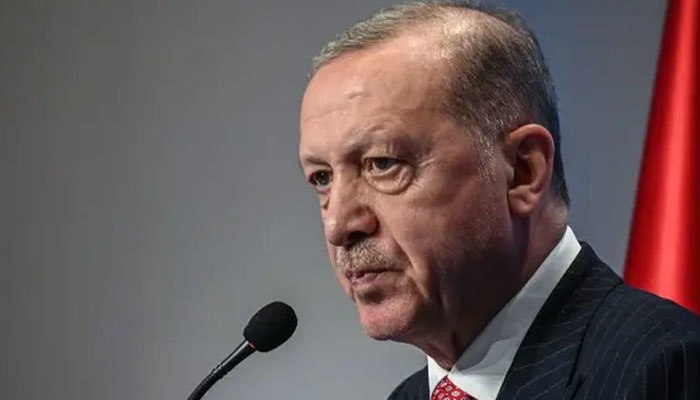Turkey is planning to build a military port in Kazakhstan… Why?

President Erdogan’s growing concern about regional threats and the failed coup attempt against him in 2016 has driven him to aggressively seek military expansion in any areas where he can establish a foothold. Recently, the newspaper “Yeni Safak” revealed that Turkey has signed a decisive project to construct a military port in the Caspian Sea in Kazakhstan.
Turkey claims that the port will change military and economic balances, offering the country significant geopolitical advantages in the global energy and trade equation. According to the newspaper, Turkish companies are preparing to undertake a crucial project to meet the needs of their neighbor, Kazakhstan. These companies will build a military port that will play a strategic role in geopolitical dynamics.
The project involves designing and constructing a variety of warships and commercial ships, ranging from regular combat vessels to advanced warships. It also includes the design and construction of multiple ship platforms.
According to the newspaper, the project’s initial phase will begin with a ship repair workshop in the Caspian Sea, involving two Turkish companies and a Kazakhstani company. Subsequently, the project will expand to include the establishment of a port.
The participating companies in the project are ASFAT, YDA Group from Turkey, and the Kazakhstani government-owned company Uralsk Plant “Zen” JSC. The contract was signed between the participating companies at the “IDEF 23” exhibition.
It is planned to deploy warships and army boats in the port to meet Kazakhstan’s military and trade needs. The project is expected to commence by the end of this year or the beginning of 2024.
Recently, the city of Al-Khums in northwest Libya witnessed angry protests against a sudden and controversial decision to annex the city’s commercial port to a naval military base under Turkish control.
Protesters argued that converting their city’s port into a military base would cut off sources of income for around 5,000 families in several areas, including Al-Khums, Al-Jahawat, Silyan, Al-Amamra, Murganah, Al-Qurah Bully Qasr Khayar, Tarhuna, and Wadi Kaam. They deemed the government’s decision “arbitrary” and not in the interest of the region or the country, believing it would further expand foreign forces.












